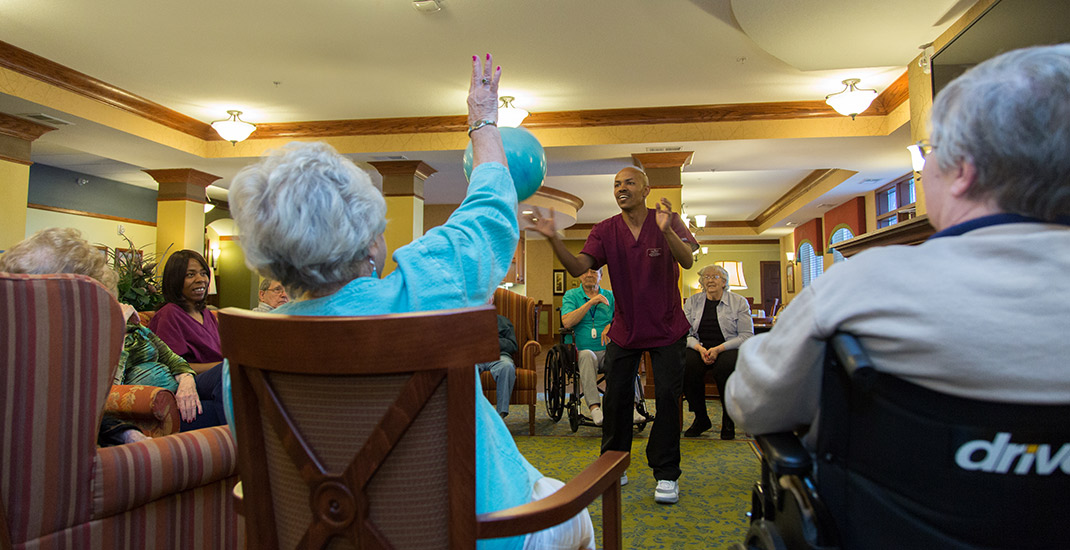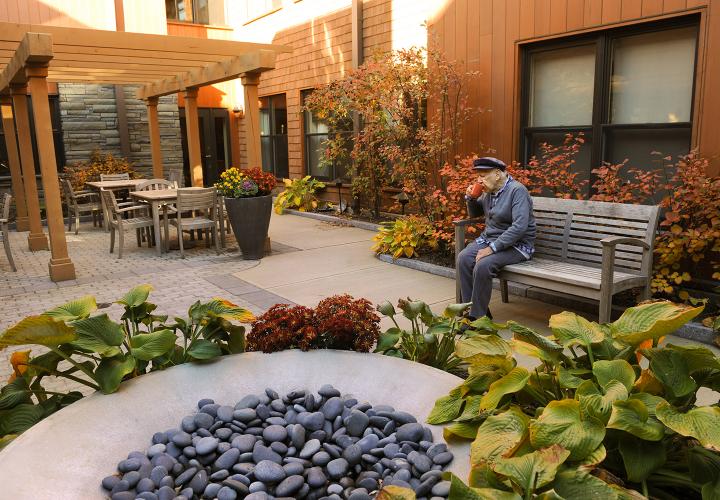Charlotte Memory Care: Specialist Assisted Living for Memory Support
Charlotte Memory Care: Specialist Assisted Living for Memory Support
Blog Article
What to Anticipate in Memory Care: A Detailed Guide to In-Home Solutions
As households come to terms with the difficulties of caring for somebody with memory loss, the realm of in-home solutions supplies a lifeline of assistance and specialized care. Understanding what to expect in memory care is essential for making sure the wellness of both the individual with memory impairment and their caretakers.
Daily Regimens and activities
Participating in organized daily tasks and routines is an essential component of supplying quality treatment for individuals in memory care centers. These activities are meticulously created to cater to the certain needs of homeowners with cognitive impairments, such as Alzheimer's condition or dementia. Daily regimens play an essential function in keeping a sense of experience, safety and security, and function for people in memory care.

Additionally, day-to-day regimens aid individuals in memory care facilities to feel more oriented and less anxious. Consistency in activities and routines can minimize complication and anxiety, supplying a feeling of security and convenience. Caretakers and team participants play an important function in promoting these tasks, making sure that each resident receives customized and caring treatment customized to their special choices and capabilities.
Specialized Treatment Solutions
Within memory care facilities, specialized care solutions are vital to deal with the distinct requirements and difficulties faced by individuals with cognitive problems such as Alzheimer's condition or mental deterioration. These services are developed to offer tailored assistance that deals with the certain demands of residents dealing with memory loss. Specialized treatment services in memory treatment centers commonly consist of personalized treatment strategies, help with activities of daily living, drug administration, and behavioral therapies focused on enhancing quality of life and minimizing distress.
In addition, memory treatment facilities commonly use structured programs and tasks particularly designed to boost cognitive function and promote social interaction amongst citizens. These activities might include memory-enhancing workouts, sensory stimulation treatments, and reminiscence treatment sessions. Additionally, specialized treatment services usually involve normal monitoring of homeowners' health and wellness and well-being by skilled staff participants who are outfitted to deal with the one-of-a-kind difficulties related to cognitive decline.
Safety And Security Steps and Setting
Executing rigorous precaution and creating a safe setting are critical top priorities in memory treatment facilities to guarantee the health and protection of citizens with cognitive problems. Safety in memory care begins with safe and secure building design, including locked doors and checked entries to avoid homeowners from straying outdoors without supervision. Additionally, centers typically have security system and security cameras to keep track of citizens and react promptly to any kind of emergency situations. Inside, the environment is carefully planned to reduce dangers, with handrails, get bars, and non-slip flooring to avoid falls. Furniture is organized to help with easy navigation, and potentially hazardous items are locked away or gotten rid of. Personnel obtain specialized training in taking care of emergency situations, de-escalating tough habits, and making sure the security of citizens in any way times. Routine safety assessments are conducted to he said recognize and resolve any type of prospective risks quickly. By prioritizing safety and security actions and preserving a protected environment, memory treatment facilities aim to provide a encouraging and protective setup for individuals with cognitive disabilities.
Interaction and Engagement Methods
With a focus on fostering meaningful communications and boosting quality of life, reliable interaction methods play a critical role in sustaining individuals in memory treatment centers. Communication in memory care entails recognizing the one-of-a-kind demands of citizens who might have cognitive problems like dementia.
Engagement techniques are additionally crucial in memory care, aiding citizens stay energetic, promoted, and connected to their environments. Activities like songs therapy, art courses, memory sessions, and sensory stimulation can trigger memories, enhance mood, and advertise socialization. Customizing activities per individual's capacities and rate of interests is key to cultivating engagement and a feeling of accomplishment. In addition, incorporating acquainted items, pictures, and music from the person's past can offer convenience and stimulate favorable memories. By prioritizing tailored communication and interaction strategies, memory care centers can boost the total well-being and quality of life for their locals.
Caregiver Support and Resources
Provided the crucial function caretakers play in applying effective communication and interaction methods for homeowners in memory care facilities, offering appropriate assistance and sources is necessary to guarantee the well-being of both the caregivers and the individuals under their care. Caregivers in memory care settings frequently deal with special obstacles that can influence their physical and go now psychological health. To resolve these obstacles, numerous assistance systems and sources are available to aid caregivers in providing the very best feasible care.
One vital kind of assistance is caretaker education and learning and training programs. These programs outfit caretakers with the essential skills and knowledge to effectively manage the actions and signs and symptoms related to memory loss. Additionally, assistance teams provide caregivers the possibility to link with others who are experiencing similar obstacles, supplying a sense of community and understanding.

Verdict

Engaging in organized daily activities and regimens is a fundamental element of giving quality treatment for people in memory care facilities.Within memory treatment centers, specialized treatment services are necessary to address the unique requirements and obstacles dealt with by people with cognitive impairments such as Alzheimer's condition or mental deterioration. Specialized treatment services in memory care facilities commonly consist of personalized care plans, help with tasks of day-to-day living, medication management, and behavior therapies intended at boosting top quality of life and minimizing distress.
Given the vital duty caretakers play in implementing effective communication and interaction methods for citizens in memory treatment centers, supplying appropriate assistance and sources is necessary to make certain the health of both the caretakers and the people under their care. Daily activities, specialized treatment solutions, safety and security actions, interaction approaches, and caretaker assistance are crucial elements of in-home memory care.
Report this page